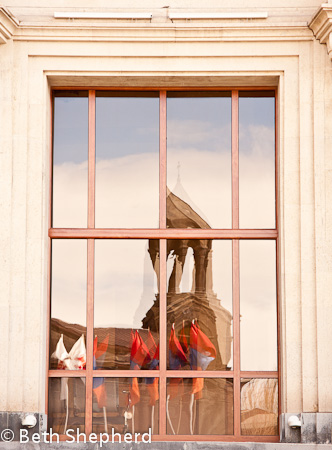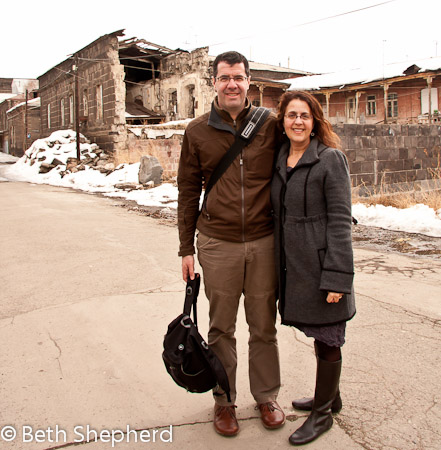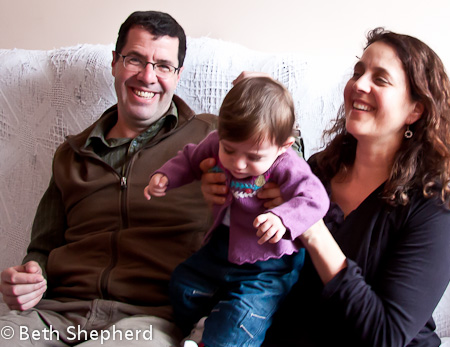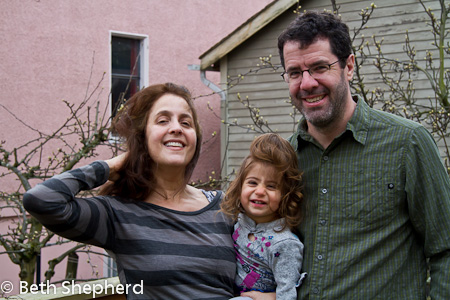March 22, 2012. Gyumri, Armenia.

Our translator picked us up and drove us to the courthouse in Gyumri where, two days earlier we attended court and were given the opportunity to state our case as to why we wanted to adopt a child from Armenia. The judge was a stern looking woman who sat stiffly upright behind an impressive looking wood desk. One guard stood beside the courtroom door and another stood at the base of the judge’s stand. There was also a woman representing the district where Baby Bird was born. She was present in court as a child advocate for Baby Bird.
My hands were wet with perspiration and I felt nervous and shaky, like I feel when I’ve had too many cups of coffee. Big Papa and I sat next to each other, he in his suit coat and tie and me in my dress. We gave our names and swore to tell the truth.
Big Papa stood and gave a formal summary of our case: how we’d submitted our dossier to the Republic of Armenia, that we’d received approval from both the United States Center for Immigration and the Central Adoption Authority under the Ministry of Justice of Armenia. He spoke about the child we met and hoped to adopt and the circumstances that left her without a family. And he expressed our desire to be granted permission to become her legal parents.
When it was my turn, I told those present in the courtroom that Armenia had become a part of me: I loved the country’s deep history, the kindness of the people we’d met, the amazing food, art and music. I spoke about how proud I was that my daughter was a Gyumri girl, born in a region of her homeland that reminded me of the eastern part of the state where we live, surrounded by mountains and starkly beautiful brown hills. and the city itself–old world buildings in soft hues of pink from the tuff stone used to build them, decorated with artistically crafted metal downspouts depicting flowers and birds.
We were asked several questions by both the judge and the district representative. It felt like we were in that courtroom for hours, but in reality, maybe 30 to 40 minutes had passed. When it was over, we walked out to the hallway outside the courtroom and our attorney told us we’d done a good job. I hoped so, but at the moment I felt edgy like I’d just defended my dissertation.
The two days between our court appearance and the day we would find out the verdict, passed slowly. Big Papa and I took long walks around Gyumri. We went to the Dzitoghtsyan Museum of architecture, the Black Fortress, and saw the old church in the town square whose steeples had toppled during the devastating 1988 Spitak earthquake. We shopped at the open air market and the pedestrian shopping street, saw wonderful art at the Berlin Art Hotel, ate a few amazing meals (Poloz Mukuch and Cherkezi Dzour) and did whatever we could to pass the time and not worry about the verdict we were awaiting.
Thursday, March 22 arrived and as we stood outside the courtroom, shortly before noon, we found out the judge was sick and would not be presiding in court today. I looked at Big Papa with worry in my eyes. With all the disappointments and delays we’d experienced over the past four years, would the verdict on our adoption also be postponed? Would we find out that we needed to wait an additional 30-days before we could take legal custody of our daughter (allowed, but not required, by Armenian law)?
Happily, a few minutes later, the court attendant returned and informed us that the judge had already signed our court decree, and approved our adoption.
WE WERE A FAMILY!
I couldn’t hold back my tears. It was such an enormous release, the weight being lifted from my heart. Then I hugged Big Papa tightly.
Our attorney looked at me quizzically, smiled and with a wink of his eye said, “You’re finally a mom! Why are you crying?”

Next we headed to the Civil Status Registration Office, a stately building located in the city’s central square. This office is where marriages and births are registered, and where we would file our paperwork stating we were Baby Bird’s parents.
“May your eyes be bright,” the clerk told us in Armenian, smiling warmly. Then she went on to say, “Adoptive families have love in their hearts. May your daughter come to understand what you felt at this moment.”
What we felt at this moment? How to even begin describing the roller coaster of emotions and experiences that filled our days over the last few years: uncertainty, doubt, fear, sadness and ultimately elation that everything came together and forged a path to this one little girl, our daughter.
The past year has been a wild ride, both exhausting and exhilarating as we navigate the many transitions becoming a family has brought to all of our lives. Today, the three of us are celebrating: we’re lighting the tuff candle we brought back with us from Gyumri, me and the Mr. will raise a glass (or several) of Armenian brandy as we say “Genats,” and toast our family, and Baby Bird will toast the occasion with ice cream (she just had tonsil surgery yesterday). And to honor our daughter’s heritage, we are also making a donation to an organization in Gyumri that supports strengthening Armenian families and helping them stay together.
We are deeply grateful to be where we are today. There were many times on our journey when we doubted whether we would ever get there, but get there we did and here we are one year later. A family!

HAPPY FAMILY DAY to us!
Not flesh of my flesh,
Nor bone of my bone,
But nevertheless still my own.
Never forget for a single minute
You weren’t born under my heart
But in it.
Congratulations on your anniversary! I hope Baby Bird recovers quickly from her surgery. I will toast the three of you tonight (maybe ice cream, maybe an adult libation).
Tell us how a non Armenian in her fifties adopts a child in Armenia that is healthy, you must have paid someone off. Or after 4 years they were tired of looking at you, constantly coming into our country to purchase a child that will never know her ancient language and more than likely you will not be around to raise in her 20s. Don’t kid yourself Armenians don’t like people like you.
I’m sorry you feel this way, Armine. I would be very happy if more Armenians–in Armenia or here in the U.S.–adopted children. But I also believe that all children deserve to grow up in a home. Since our daughter was not adopted by an Armenian family (there is a period of time when children are ONLY available to Armenian families_in_Armenia) she was adopted by a non-Armenian family.